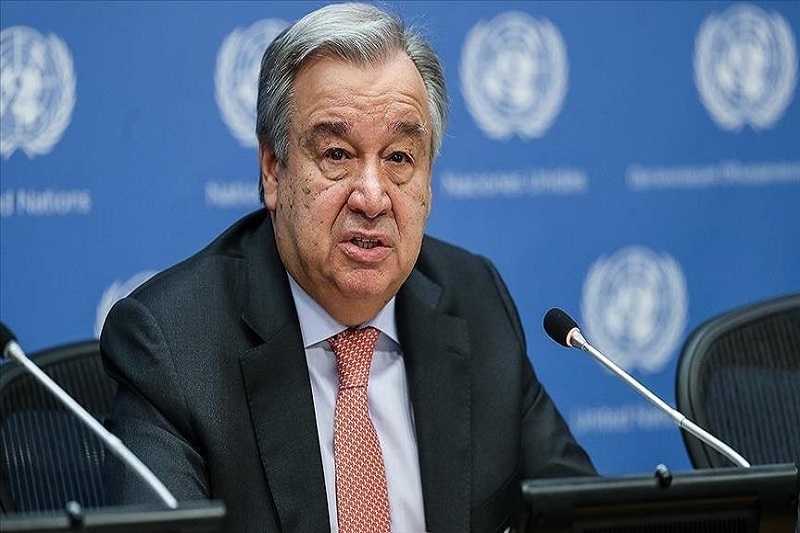On Thursday, United Nations Secretary-General Antonio Guterres issued a request for a truce in Sudan that would last “at least three days” in observance of Eid al-Fitr, which celebrates the conclusion of the holy month of Ramadan. “According to the Islamic calendar, we are currently in the midst of a very significant event.” Guterres told reporters, “I think this is the right moment for a ceasefire to hold,” adding, “We have been in contact with the parties, and we believe it is possible.”
The cessation of hostilities would “enable civilians trapped in conflict zones to escape and seek medical treatment, food, and other essential supplies,” according to Guterres’s statement. Since the battle began on Saturday between soldiers loyal to Sudan’s army leader Abdel Fattah al-Burhan and his deputy, Mohamed Hamdan Daglo, who controls the paramilitary Rapid Support Soldiers (RSS), more than 300 people have been murdered.
Guterres has stated that the truce that would take place during Eid “must be the first step in providing respite from the fighting and paving the way for a permanent ceasefire.” “This ceasefire is absolutely crucial at this very moment,” he added. “This is the only way forward.” The capital city of Khartoum, which is home to five million people, has been the site of some of the bloodiest conflicts. The majority of the city’s inhabitants have been trapped inside their homes without access to food, water, or electricity.
“A serious conversation allowing for a successful transition must come after the cessation of hostilities,” Guterres stated. “The appointment of a civilian government should be the first step in this process.” People in Sudan are leaving the capital city of Khartoum, taking with them whatever possessions they were able to take with them, and attempting to get out of the city. Since Saturday, forces loyal to the country’s top two generals have been fighting one another in Khartoum using tanks, artillery, and airstrikes.
After food supplies began to dwindle and it became too risky to go out and resupply, leaving Khartoum has become the only remaining option for those who wish to survive. Consequently, cooperation between neighbors is now considered absolutely necessary. People swarmed the Shendi bus station in an attempt to get out of the capital city as quickly as possible.
Related Posts
Since the battle began, the price of tickets has significantly increased. A standard ticket to River Nile State, which is approximately 350 kilometers away from Khartoum, used to cost approximately 10,000 Sudanese pounds, which is approximately $18 today, but it now costs 40,000 Sudanese pounds, which is almost $70. “The situation is quite dire; this is not acceptable, and it is not going in the right direction.” The citizens are completely taking advantage of one another,” remarked a traveler who identified himself as al-Nour Abdallah.
As of Thursday, Sudan’s military said it would only accept the rival paramilitary force’s surrender. At the same time, the two sides continued to fight in central Khartoum and other parts of the country, which threatened to derail the most recent attempt at a cease-fire. There are no signs of an agreement being reached as a result of the Sudanese military’s decision to rule out negotiations with the rival paramilitary force.
Residents have been pleading for at least a short cease-fire to let them either relocate to safer regions or stock up on supplies so they can continue to survive the conflict. There are over 12 million people living in the area surrounding the capital, out of Sudan’s total population of 46 million. This is where the majority of the fighting is taking place.

